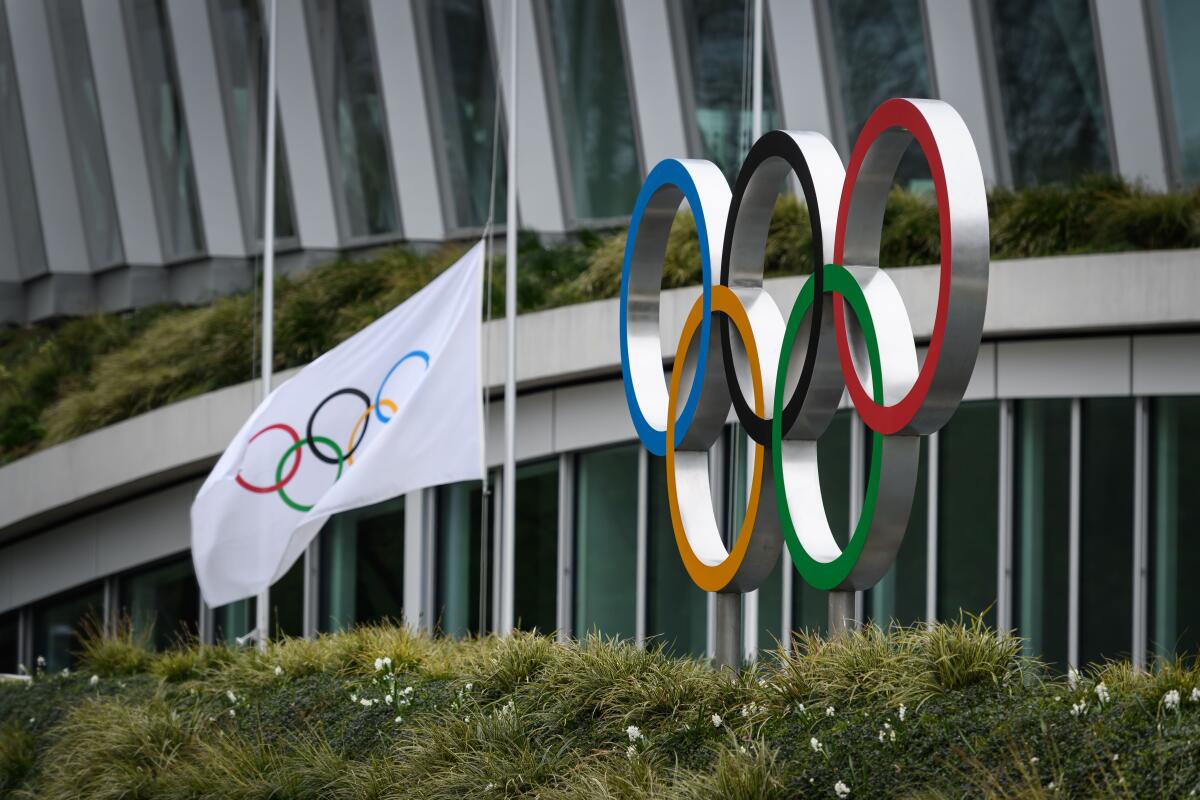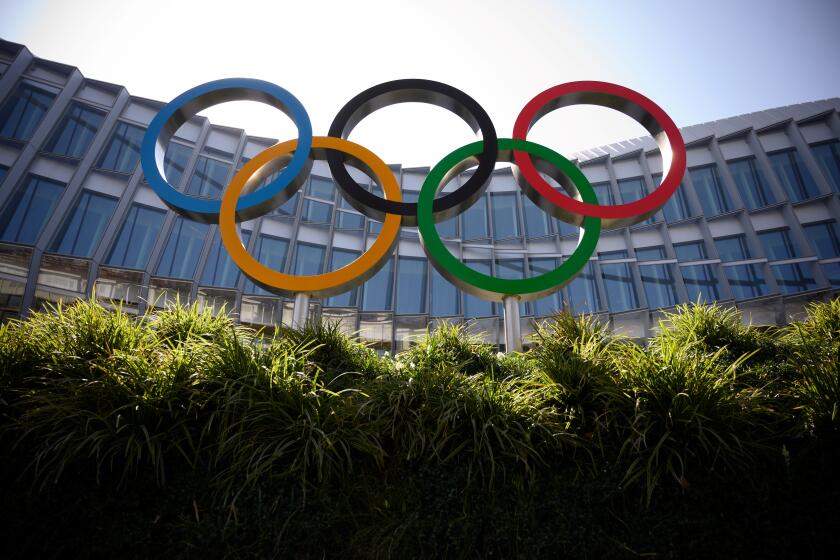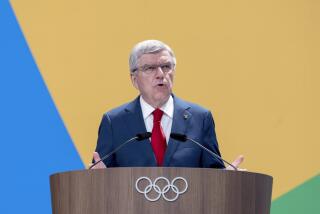Olympic leaders vow to step up talks about postponing the Tokyo Games

Faced with growing criticism of their hesitant response to the coronavirus outbreak, Olympic leaders have vowed to “step up” discussions regarding the 2020 Tokyo Games and expect to reach a decision on postponement and other potential changes within four weeks.
Though the International Olympic Committee says cancellation is not on the table, the announcement Sunday reflects a continuing shift in tone for an organization that previously insisted the Games would begin as planned July 24.
“Human lives take precedence over everything, including the staging of the Games,” IOC President Thomas Bach said in an open letter to athletes. “The IOC wants to be part of the solution.”
In addition to considering postponement, officials said they will explore “modifying existing operational plans,” but did not offer details.
It had been speculated the IOC might resort to a scaled-down version of the competition or, perhaps, ban spectators. But on Monday, Japanese Prime Minister Shinzo Abe said he would resist holding anything short of a complete Games.
Pressure on Olympic leaders intensified when the Canadian Olympic Committee declared Sunday night it will not send a team to Tokyo this summer and Australia advised its athletes to prepare for a one-year delay.
“This is not solely about athlete health,” Team Canada said. “It is about public health.”
Recent days have seen the national Olympic committees of Brazil, Norway and Slovenia call for postponement. The national governing bodies that oversee track and swimming in the U.S. have echoed that request.
“We acknowledge that there are no perfect answers, and that this is a very complex and difficult decision,” said Max Siegel, chief executive of USA Track & Field.
As recently as late last month, an influential IOC member had maintained that no decision had to be made until late May. That stance was weakened by the continuing spread of the COVID-19 pandemic, with more than 331,000 cases and 14,450 deaths reported worldwide.
A look at athletes, coaches and others in the sports world who have tested positive of the coronavirus.
The dramatic increase compelled the IOC executive board to announce “the next step in its scenario-planning.” Though the committee and Tokyo organizers carry insurance against unforeseen events, officials reiterated that postponing the Games would not be easy.
International federations representing more than 30 summer sports have secured deals with host cities and venues for their world championships in 2021. The IOC said that millions of Tokyo hotel rooms have been booked for this summer and some of the city’s stadiums and arenas might not be available at a later date.
Postponement would also require the cooperation of television broadcasters and corporate sponsors who pour billions of dollars into the Olympic movement.
“Together with all the stakeholders, we have started detailed discussions today to complete our assessment,” Bach wrote, adding that “we are confident that we will have finalized these discussions within the next four weeks.”
The IOC president acknowledged the difficulty athletes face in preparing for Tokyo. Some live in countries where the virus has forced gyms, tracks and pools to close; others face no such limitations.
In pushing ahead, Olympic leaders and Tokyo organizers held scaled-back ceremonies last week to light the Olympic torch and transport it to Japan for the start of the traditional relay.
Canada’s Olympic committee announced Sunday it will only send athletes to the Tokyo Olympics if the Games are postponed by one year because of the coronavirus.
Now, they will consult with the Japanese government and international health experts in making a crucial decision. Since the late 1800s, the modern Games have stepped aside only for World War I and II.
The international track federation said in a statement that it will “stand ready to work with the IOC and all sport on an alternative date.” Though stopping short of asking for postponement, the U.S. Olympic & Paralympic Committee similarly voiced its support for further talks.
“We know the difficult obstacles ahead and we are all appreciative that the IOC has heard our concerns and needs, and is working to address them as quickly as possible,” USOPC chief executive Sarah Hirshland and athlete representative Han Xiao said in a joint statement. “Together we will find solutions that keep the spirit of the Games alive.”
More to Read
Go beyond the scoreboard
Get the latest on L.A.'s teams in the daily Sports Report newsletter.
You may occasionally receive promotional content from the Los Angeles Times.









